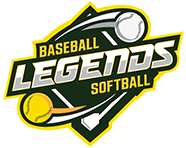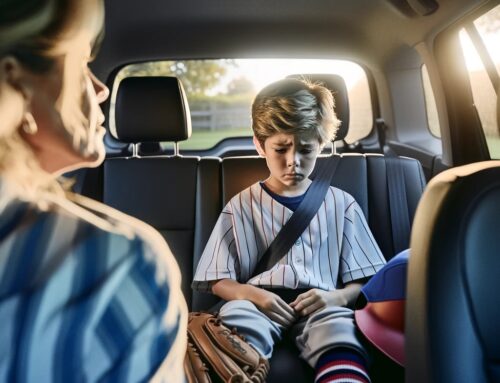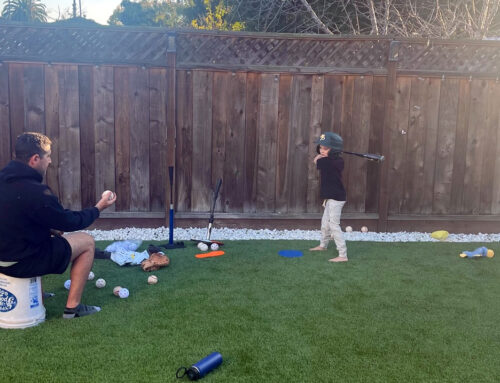Tips For Parents
Tips For Parents
The 5 Steps To Youth Baseball Success: (2/5) Playing Options – Little League
The 5 Steps To Youth Baseball Success: Part 2
The Playing Options: What to Expect in Little League
First off, I want to say that I’m a huge supporter of, and played Little League. I’m sure my kids will play as well. I had a wonderful experience and I still do a lot of work with Little League today. Little League is awesome because it’s community driven. You’re going to have the families out there, you’re going to have burgers flipping after games, your kids are going to have an opportunity to play with their classmates and against their classmates. It just feels good and when done right it is fun!
Little League is Competitive by Nature
Little League is more than just fun, it’s somewhat competitive too. I think Little League has done a good job at that. The league structure is nice as well. It’s very different from what you’d get in travel ball or other “just weekend” tournaments. The league is very similar to what you get in high school, or college, or in the game of life itself…where every game really matters.You also see a flow with the ups and downs of the season.
Lastly, the cost is fairly affordable, a hundred, two hundred, three hundred bucks for a season. It’s a really good value for getting your child outside and recreating.
Now, Here are Some of the Downsides
First off, the coaches may be untrained and unskilled. Sometimes, leagues will train their coaches. They’ll hire someone like myself to do these professional coaching clinics and it’s great when they do. But it’s not a mandate from Little League Headquarters. There’s also no mandate to screen the coaches. So you’re going to have coaches out there that have had no background checks. They may be certified to sell auto insurance or real estate but not to coach baseball. For many coaches, it’s a matter of who is available, and how quickly can that dad or mom can bone up on YouTube baseball drill videos.
They may not have any baseball playing or coaching experience whatsoever. We then ask them to teach kids to do the most difficult thing in sports such as hit a baseball. So that’s one of the big issues.
Next, there are level of play issues. Specifically, on a majors or minors team, you may have a really high-end, elite player that’s a lot bigger than other players on the field (that may be considered beginners or intermediate players), and that skill and size difference can sometimes be dangerous (i.e. collisions, hard hit balls, hit by pitch etc.).
A widespread cultural issue involves a huge focus on All-Stars that makes things very difficult for kids. It’s problematic for me because the kids that aren’t as skilled and need the extra work are often excluded from the season extension that All-Stars provides.
The concept that we’re extending the season and giving it an extra month (sometimes two), to only the best players creates an even larger talent gap that we already have in Little League. All-Stars also involves parents who are sort of fiddling with player drafts and All-Star voting (for example) where parent politics do get in the way because everyone really wants to excel in All-Stars. As I mentioned, parent politics in Little League are oftentimes an issue. If you’ve been in Little League, you’ve probably seen it.
The last thing that I want to say is that Little League baseball has done a very poor job of evolving with the times. You see Major League Baseball making all kinds of experimental changes to the way that the game is being played, but there’s nothing being done at the youth level.
So in my opinion, in order for Little League to remain relevant, they need to start changing up the game, making things more modern, fast paced, and attractive to the fast paced, gen-Z brain.
I have several recommendations: First and foremost is to go out and look for a fun experience; expect fun, but don’t expect there to be a significant level of development.
Of course, there should be some development and improvement going on just because they’re going out there and playing every day. Realistically, I wouldn’t expect that your child is going to get the expert coaching that they may get elsewhere. You’re never going to get that good at baseball practicing two times a week, or 2, 3, or 4 hours a week total. You need to practice at home. So supplement your Little League by playing catch at home as much as possible.
I’ve also seen too many issues with kids deciding to play up and playing at a higher level than what they’re comfortable with. Unfortunately, it makes for a suboptimal experience for many of the kids. If you want your child to be pushed and play up, I would really think carefully about whether it makes sense. Alternatively, they could be a bigger fish in a small pond, be a leader, develop leadership skills, be a star, and build confidence. That’s the big payoff when you don’t play up. When you play up, sometimes you become that small fish in that big pond, which is not always the best thing for all kids.
Last but not least, is that your Little League experience is largely shaped by the coach that you have and the friends that you play with. So to the extent that it’s possible, try to get with the very best coach that you can. I’m not just talking about the coach that knows a lot, or played in college or professional ball, find the coach that knows how to create a fun experience. Go with a coach that is organized, that really loves what they’re doing, and puts together a solid practice plan. The key for me is to get in with a really great coach, expect fun, bring the fun, and if you do that, Little League can be a really awesome experience.
Regular Updates | Discounts | Tips For Legends Parents

David Klein
Founder & Chief Experience Designer
David Klein, a nationally recognized and award-winning coach, has revolutionized the baseball and softball landscape with his transformative coaching techniques. As the founder of Legends Baseball and Softball in 2009, he's grown it into the West Coast's premier club baseball program and the U.S.'s sole franchise dedicated to both sports, boasting over 50 MLB signees and producing notable major leaguers and Olympians. Beyond his on-field successes, David's "Legendary Life Playbook" has enriched thousands of young lives, teaching crucial life skills through sport. His innovative SpeedBall™️ concept reimagines the traditional game, and as 2024 nears, he gears up to launch a leading certification program for youth sports coaching.





